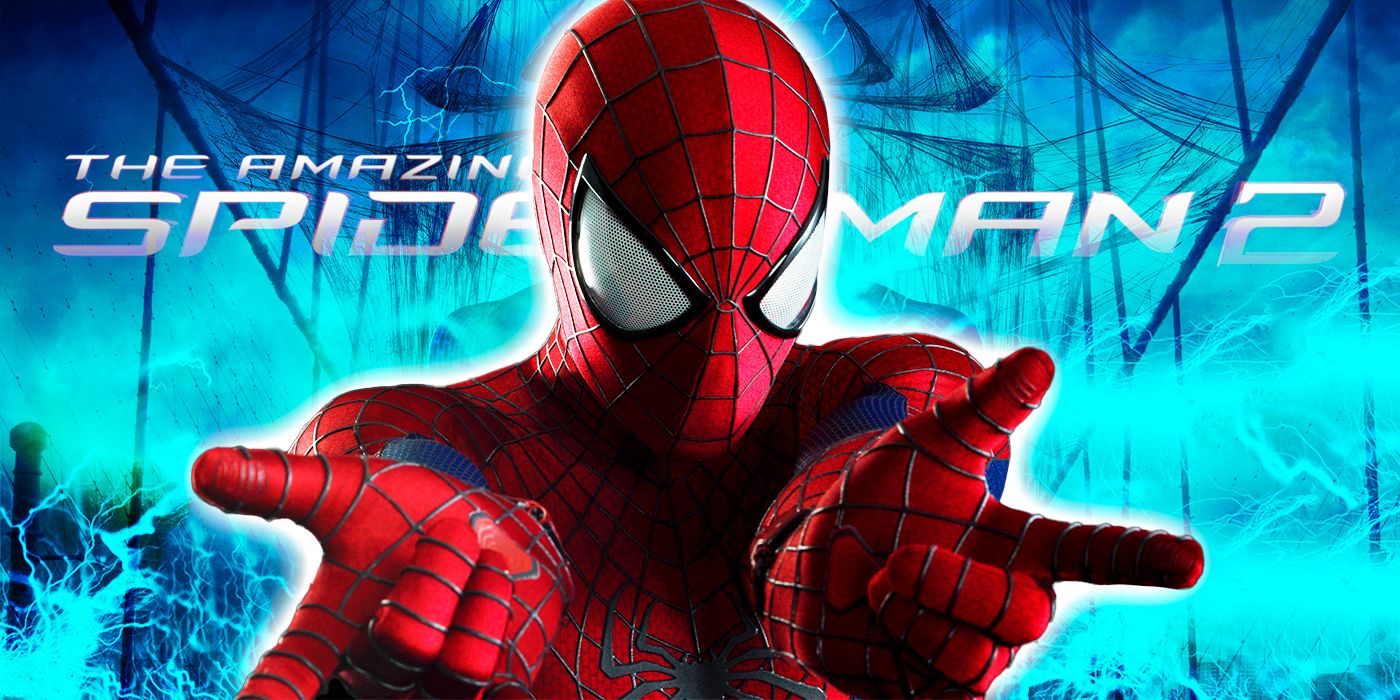Marvel found box office success in 2014 with the releases of Guardians of the Galaxy, Captain America: The Winter Soldier and X-Men: Days of Future Past... and then The Amazing Spider-Man 2 happened. Marc Webb's The Amazing Spider-Man sequel wasn't necessarily terrible, but it proved that the webbed superhero needed to hang up his suit for a little bit. Two years after the first film, now college-student Peter is wracked with guilt over his continuing relationship with Gwen Stacy, having promised her father to keep her out of his life. The guilt triples when three new villains walk into Spider-Man's life -- one of them being Peter's best friend Harry Osborn, played by Dane DeHaan.
It's a tale as old as time with Spider-Man, as Peter is forced to decide whether putting the people he loves at risk is worth wearing the mask. While Webb's original approach to a coming-of-age Spider-Man flick paid off, there's an eerie feeling throughout Amazing Spider-Man 2 that Sony was the sequel's true director. Unfortunately, the overabundance of set-ups and future assurances results in a messy narrative, with little focus on what makes Spider-Man amazing.
The Amazing Spider-Man 2 Works Best in Its Few Emotional Moments
Intimate Exchanges Between Peter, Gwen and Aunt May Make the Film
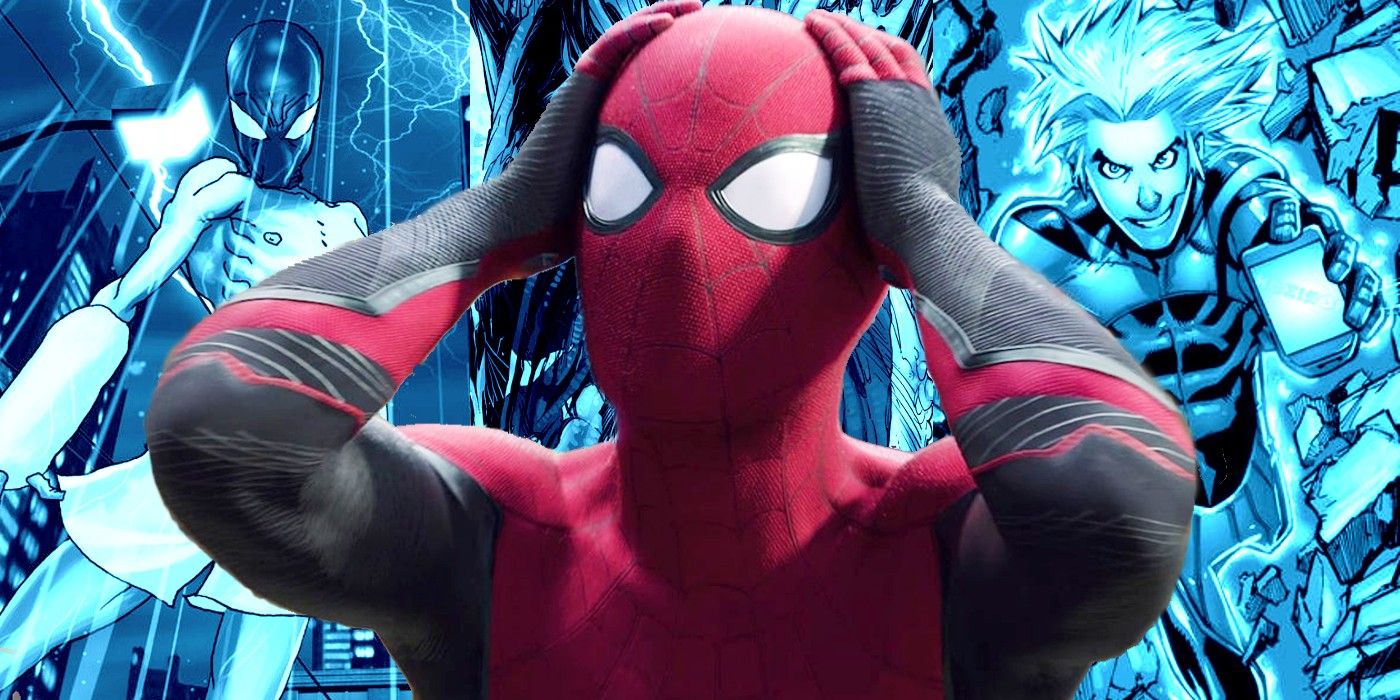
10 Spider-Man Storylines That Will Never Work on the Big Screen
Over half a century's worth of Spider-Man stories await adaptation as movies, but some of Marvel’s web-swinging adventures aren’t ready for Hollywood.The Amazing Spider-Man 2 pays more attention to how Peter Parker's role as a superhero conflicts with his personal relationships. Webb's intentions come through in sporadic moments, but they're unfortunately overshadowed by savvy exhibitions of action. There's a recurring thread throughout the film in which Spider-Man stops bullies from picking on a little boy (played by Jorge Vega) and fixes his school project for him. Spider-Man offers to walk the little boy home, as radio presenters narrate whether Spider-Man is helping or hurting the city. Months after Spider-Man's sudden disappearance, the little boy -- now dressed as Spider-Man in a homemade costume -- steps in front of Rhino to stop the villain. It's a small, but meaningful subplot that nails why Peter's inner conflict is necessary. Without Spider-Man, the city and its people would have very little hope.
Although the Rhino fight is bombarded by dicey dialogue and big explosions, The Amazing Spider-Man 2 tries to be an intimate movie. There's a scene between Peter and Sally Field's undervalued Aunt May in which she lays out all her insecurities, calling herself "dumb" and feeling unworthy of being Peter's sole role model in life. The exchange is tear-jerking and it feels absolutely sincere when Peter reminds her that he's her boy, even if he's not her biological son. It's a beautiful statement about the relationship between adoptive children and their parents at a time when the child grows more curious about their biological parents.
Garfield and Stone continue to have the most electrifying chemistry of any Spider-Man couple, since The Amazing Spider-Man 2 utilizes the "forbidden love" trope. Peter and Gwen's on-again, off-again relationship allows for their romantic tension to light up the screen more than Electro's powers. The quiet moments between the two are almost always interrupted by Peter's Spidey senses triggering him, acting as a motif for Peter choosing his Spider-Man responsibilities. Their unconditional love for each other makes Gwen's untimely, if not wholly comics-accurate, death one of the most heartbreaking moments in a Spider-Man film. Peter's grieving reaction is so poignant that the emotional weight carries over into Spider-Man: No Way Home seven years later.
Juggling Three Villains Ineffectively Copies Spider-Man 3
The Amazing Spider-Man 2 Fails to Avoid Spider-Man 3's Mistakes
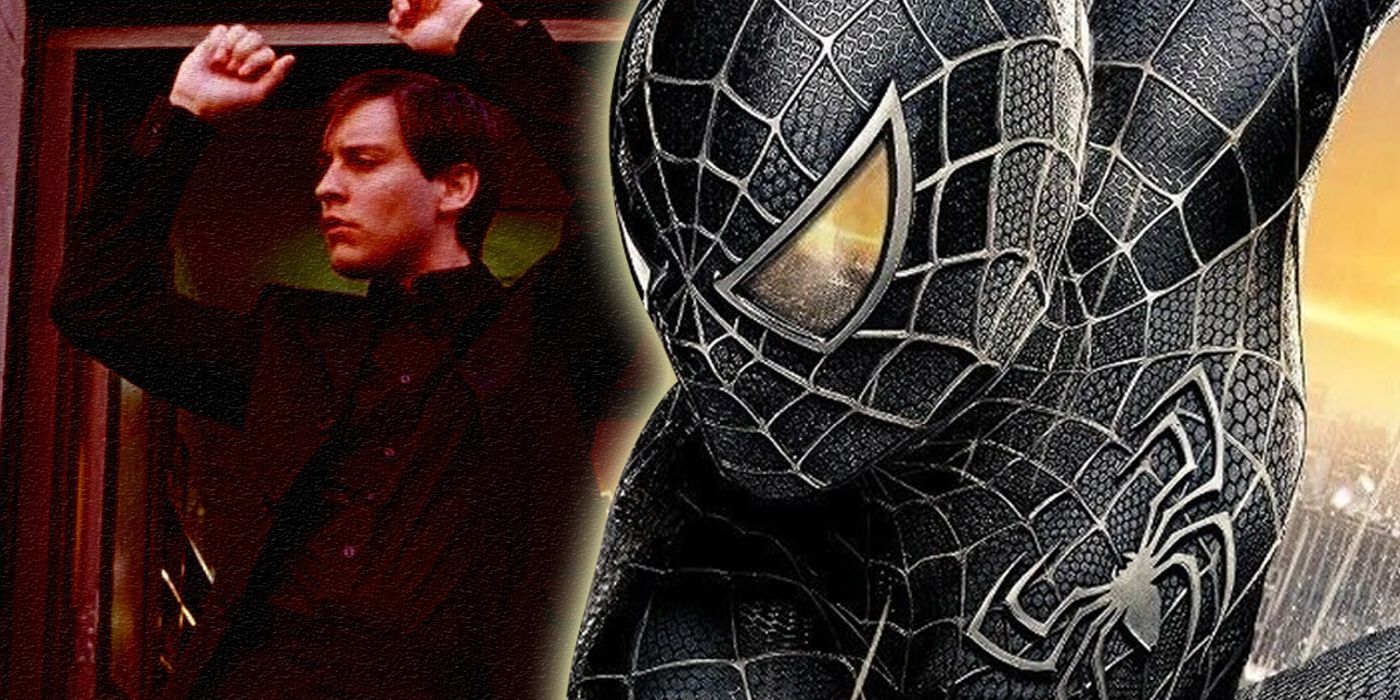
RETRO REVIEW: Spider-Man 3 Is Too Much of a Good Thing
Spider-Man 3's is infamous for supposedly ending Sam Raimi's trilogy, but the movie is better than fans remember it -- save for a few bad decisions.The Amazing Spider-Man 2's biggest flaw is one that could've easily been avoided -- since another film already failed because of it. Spider-Man 3 forced director Sam Raimi to squeeze in the stories of three villains. The result was crammed and cloudy, putting an apparent end to Raimi's take on the web-slinger. One would think that The Amazing Spider-Man 2 would've learned from this mistake, and given Webb and Garfield the chance to create a proper Spider-Man franchise. But nope -- someone had the bright idea to patch up Spider-Man 3's wounds and try again. Is Marvel averse trying something fresh and new? Because Dark Phoenix fell into this same trap, too.
The villains in The Amazing Spider-Man 2 are delicate, morbid versions of their true selves. The frontrunner, Jamie Foxx's Max Dillon, is a down on his luck loner who turns into Electro after falling into a vat of eels in an Oscorp facility. Who wouldn't sympathize with him? Harry Osborn is Peter's supposed best friend, but they haven't spoken in years, and he follows the same formula. The backstory of an "Osborn curse" and Dane DeHaan's dashing looks give Harry a bad-boy persona -- but his villainous side is a goofy rich-guy caricature that puts the Green Goblin name to shame. Lastly, there's Aleksei Systsevich AKA Rhino, in a wasted performance by Academy Award-nominated and Emmy Award-winning actor Paul Giamatti. Rhino is the archetypal evil Russian who is over-the-top and loves to destroy things because... he likes it apparently? The Amazing Spider-Man 2 isn't clear about his intentions, and he only appears in the first and last minutes of the film. It's clear that Rhino was thrown in at the last second.
With three terrible villains, The Amazing Spider-Man 2 is split between three different narratives that hardly coexist. There are a few webs that connect them all, but these are weakened by poor plotting and weak characterization. Electro's story is granted the most depth and attention; the international subtitle of the film is Rise of Electro. But when Harry's predicament about his own imminent death is thrown into the mix, Electro's nuance as an overlooked Spider-Man fanatic who accidentally becomes New York's number one enemy is lost. There could've been another universe where Electro and Spider-Man had a genuine frenemies relationship that turned sour, but Peter becomes too caught up in Harry's situation.
Speaking of Harry, he sticks out like a sore thumb in a movie where he lacks importance. Gwen, May and Electro are far more on Peter's radar than Harry. This is supposed to be Peter's childhood friend, who has been there for him through thick and thin. Instead, he's treated as a side mission that's easy to ignore until the last second. The fact that Harry as Green Goblin is responsible for Gwen's death is underwhelming; Harry hasn't earned the Green Goblin suit yet because of how quickly his arc comes together. That's the ramification of this turbulent lineup of bad guys: nothing feels earned.
Pressure To Create a Franchise Is The Amazing Spider-Man 2's Downfall
The Spider-Man Sequel Is Full of Set-ups and Not Enough Payoff
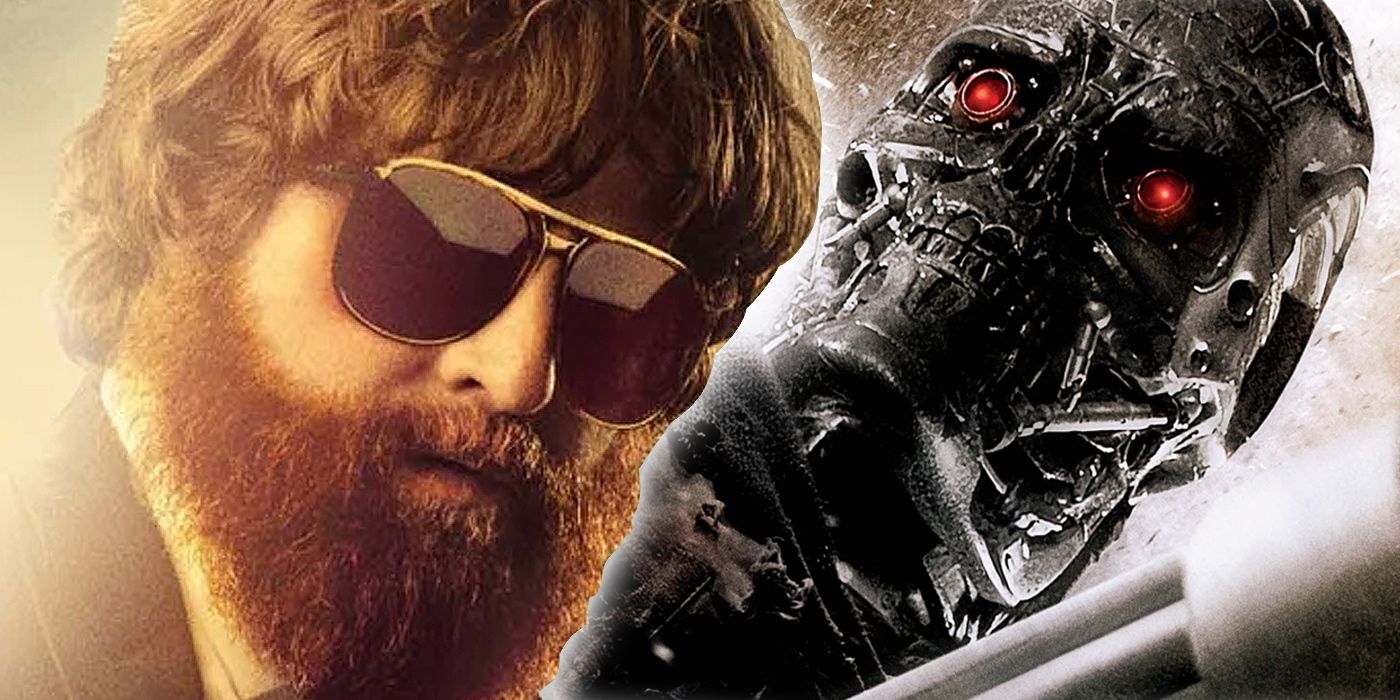
10 Most Controversial Franchise Sequels (And A Defense For Each One)
There are many great franchises that have created incredible films. While some sequels are disliked by fans, each one has something defensible.The Amazing Spider-Man 2 does not work as a standalone movie. It's painfully obvious that the inclusions of Rhino and Harry Osborn were meant to set up a third Amazing Spider-Man movie that never happened. Several other minor characters were also introduced in the movie, such as Felicia Hardy/Black Cat (played by Felicity Jones), Alistar Smythe (B. J. Novak), Gustav Fiers/The Gentleman (Michael Massee) and Shailene Woodley's Mary Jane Watson in deleted scenes.
But taking away extraneous characters wouldn't fix all the film's issues. Deepening the backstory of Peter's parents is a bold move, but one that violates the Spider-Man legacy. Richard Parker was the mastermind behind the radioactive spider, and the genetic project only worked because Richard used his own DNA to create the spider. The Amazing Spider-Man 2 insinuates that Peter got his powers through destiny, which has never been the case, as Across the Spider-Verse points out. Spider-People are chosen by random coincidence. It's what they do with their new powers that makes them heroes. Amazing Spider-Man 2's backstory deeply misunderstands the appeal of Spider-Man: he's an everyday guy just trying to help out the neighborhood.
The pressure of creating a rebooted Spider-Man franchise lets the overstuffed movie lose focus. There are elements that the film gets right: Hans Zimmer's brilliant score, Spider-Man's close relationship with pedestrians, Peter using his brainpower to invent new gadgets and webbing, and freeze-framing to slow down fast-paced action sequences. Marc Webb has all the ingredients to make a great franchise, but gets caught up in the larger spectacle. The Amazing Spider-Man 2 is proof that eating too much of the metaphorical candy at once can make someone sick, no matter how good it tastes.
The Amazing Spider-Man 2 returns to theaters for a limited time on May 13, 2024. The film is also available to stream on Disney+, Netflix and Apple TV+.
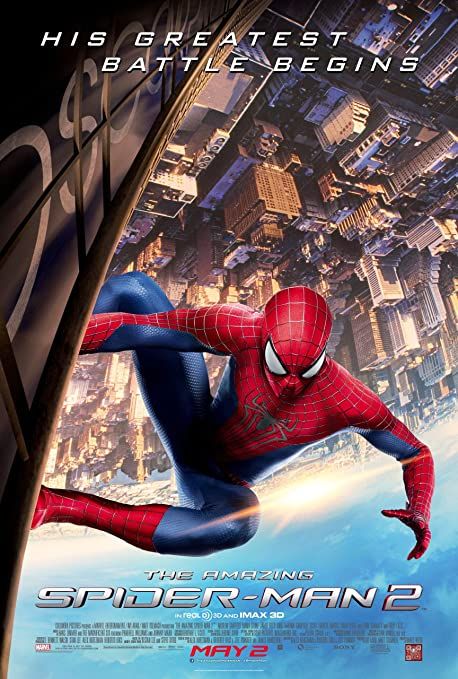
The Amazing Spider-Man 2
When New York is put under siege by Oscorp, it is up to Spider-Man to save the city he swore to protect as well as his loved ones.
- Director
- Marc Webb
- Release Date
- May 2, 2014
- Studio
- Sony Pictures
- Cast
- Andrew Garfield , Emma Stone , Jamie Foxx
- Writers
- Alex Kurtzman , Roberto Orci , Jeff Pinkner
- Runtime
- 2h 22m
- Main Genre
- Action
- Production Company
- Columbia Pictures, Marvel Entertainment, Avi Arad Productions
- Excels in its most intimate moments with Peter Parker, Aunt May and Gwen Stacy.
- Spider-Man's interactions with pedestrians make him an authentic version of the character.
- With three villains, the film loses focus quite easily.
- Ultimately acts as a setup for future installments rather than a cohesive narrative.
- Richard Parker's backstory negates what it truly means to be Spider-Man.

